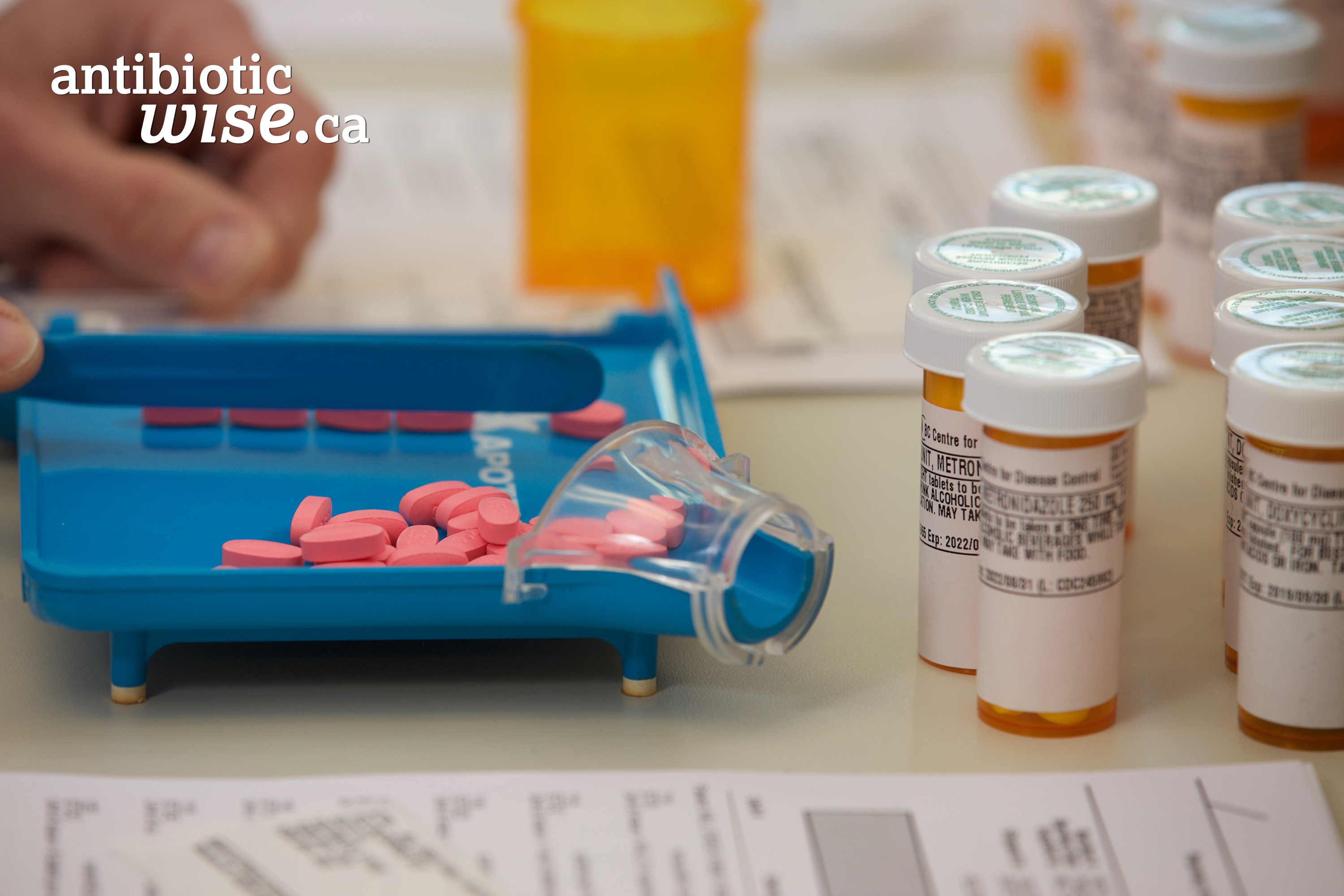Guest Post: Be antibiotic wise: Combating antimicrobial resistance in B.C.
Since the mid-20th century, antibiotics have made many bacterial infections easily treatable and modern medical procedures such as surgeries and chemotherapy possible. But with the increased use of antibiotics comes an increase in antibiotic resistance. When antibiotics are used too much or incorrectly (e.g. to treat viral infections) bacteria may no longer respond to the drug. Antibiotic resistance is a major global concern, and if not managed responsibly, it has the potential to undo many of the gains made in global health over the past century.
The Antibiotic Wise initiative at the B.C. Centre for Disease Control is tackling this important issue head on with three key messages for the public:
- Wash your hands – Hand washing is the best way to prevent the spread of infections;
- Know that not all bugs are created equal – Antibiotics work against bacteria, but not against viruses; and
- Use antibiotics wisely – Bacteria can become resistant to antibiotics if not used properly.
Through community outreach, public and health care professional education, and research and surveillance, the program is attempting to reduce the overuse and misuse of antibiotics in B.C. to ensure we continue to have effective treatments for bacterial infections in the future.
Pharmacists and pharmacy technicians are often the first point of contact for an individual filling a prescription, and are vital in the safe collection and disposal of left over antibiotics. You therefore play an important role in managing antibiotic use and educating the public on using antibiotics wisely.
Framing the problem
The continued use and misuse of antibiotics could lead to a future where many infectious diseases may become untreatable. But antibiotic resistance impacts us right now. Patients with antimicrobial resistant infections today are at twice the risk of dying, and it is estimated that 700,000 people globally die each year due to antibiotic resistance.
In 2016, 23 million antibiotic prescriptions were dispensed by Canadian pharmacies, but 30 to 50% of these prescriptions are estimated to be unnecessary (often due to being prescribed for viral infections). With pharmacists’ scope of practice now including the ability to adapt and renew prescriptions, antibiotic prescribing by pharmacists has increased significantly in recent years. While still making up a small percentage of all prescriptions written in B.C., there is a need to continue to monitor this trend and ensure prescriptions are based on best available evidence.

Stepping up to the challenge
The Antibiotic Wise initiative has undertaken a wide range of activities targeting both the general public and health care professionals across B.C. since 2005:
- More than 125,000 individuals have received antibiotic resistance and hand hygiene education through the Do Bugs Need Drugs? program;
- Province-wide public awareness campaigns run via various media each year (including transit, TV and online advertising);
- www.antibioticwise.ca provides the public with information on using antibiotics properly and the threat of antibiotic resistance; and
- The BCCDC publishes Antimicrobial Utilization and Resistance dashboards, tracking these trends in B.C. using B.C. PharmaNet and LifeLabs data.
Making a difference
In the 13 years since the program’s inception in B.C., significant gains have been made. Antibiotic prescribing has decreased more than 16% since 2005, and the use of specific antibiotic classes, such as macrolides and fluoroquinolones, has decreased even further.
Because of enhanced stewardship, including professional education and public outreach campaigns, the level of antimicrobial resistance in samples collected in B.C. has remained stable. The initiative has been successful in arresting the increase in antibiotic resistance in the province.
Since 2005, nearly $450 million dollars has been saved on the cost of antibiotics in B.C. due to decreased prescribing and use of the drugs. These savings include both patient savings (in reduced out-of-pocket drug costs) and government savings (in reduced Pharmacare spending), and represents a savings of $76.20 for every $1 spent on stewardship activities.
What you can do
The three key messages of the Antibiotic Wise initiative outlined above are applicable to everyone and represent simple actions that you can take to combat antibiotic resistance. But, as pharmacists and pharmacy technicians, you also have the power to fight antibiotic resistance in other ways.
It is important to review all antibiotic prescriptions for appropriateness. Is the antibiotic being prescribed for a bacterial infection? Is the duration of therapy sufficient without being too long? Is the class of antibiotic prescribed appropriate for the diagnosis? And of course, always safely dispose of left over antibiotics. Together with other health professionals, pharmacists and pharmacy technicians have an essential part to play in preserving the effectiveness of this vital resource.
To learn more, visit www.antibioticwise.ca or find Antibiotic Wise on Facebook or Twitter.

Nick Smith, MPH
Project Manager, Community Antimicrobial Stewardship
BC Centre for Disease Control
Nick Smith is the Project Manager for the Community Antimicrobial Stewardship program at the BC Centre for Disease Control, including the Antibiotic Wise initiative and the Do Bugs Need Drugs education program. Nick is a resistance fighter working to combat antimicrobial resistance in B.C.
Guest Post Disclaimer
ReadLinks Guest Posts are intended to expose the public and pharmacy professionals to a diverse range of knowledge, and expertise, with the goal of expanding awareness of issues related to public safety and pharmacy practice. While the College enforces strict Guest Post Submission Guidelines, the views and opinions expressed in this article are those of the author(s) and do not necessarily reflect the official standards or positions of the College of Pharmacists of British Columbia.
- Guest Post


 Share
Share



